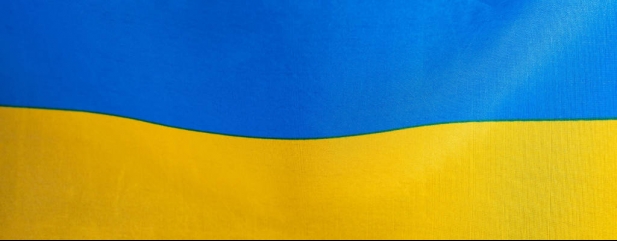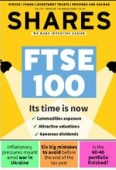Archived article
Please note that tax, investment, pension and ISA rules can change and the information and any views contained in this article may now be inaccurate.
Does invasion of Ukraine mean I should reduce risk in my pension?

Can you explain what the crisis in Russia could mean for people’s pensions? Is now the time to take some investment risk off the table given all the uncertainty we’re seeing? I’m 43, have a workplace pension and a SIPP and I’m planning to retire when I’m 65.
Owain
Tom Selby, AJ Bell Head of Retirement Policy says:
What’s happening in Ukraine is, of course, first-and-foremost a humanitarian crisis. But given Russia’s role in the global economy – in particular the supply of oil and gas – the ramifications are being felt by companies and individuals in lots of different ways.
Pension investors might understandably be nervous the conflict and resulting political uncertainty across Europe might hit their retirement plans. However, for a number of reasons investors should keep their finger well away from the panic button.
First, short-term volatility is part-and-parcel of long-term investing. It is possible the value of your retirement pot will drop if your investments hit the skids, but provided you are comfortable with the risks you are taking this should not mean you need to make any portfolio changes.
In fact, tinkering in this way risks layering on extra costs for no clear benefit, and could result in a drift away from your original strategy. While the situation in Ukraine may be unique, knocks to the stock market are not.
Second, the vast majority of pension savers – be they invested via their automatic enrolment workplace scheme, in a SIPP or elsewhere – will hold a diverse selection of assets in different sectors and different countries, either directly or through a fund manager, aimed at delivering returns over the long term.
As a result, direct exposure to a single country such as Russia will be tiny for the average person.
Take, for example, the National Employment Savings Trust (NEST), the workplace pension scheme established by the Government to support automatic enrolment. If you have been automatically enrolled into a pension, there’s a decent chance your money will be with NEST.
The pension scheme’s chief investment officer Mark Fawcett confirmed this week it will divest from Russian companies and bonds – and that this would involve selling just 0.2% of its assets.
Of course, the ripple effect of what’s happening in Ukraine will be felt more widely, with the impact on your pension depending on the assets you hold.
At most investors might want to double-check they are comfortable with their portfolio in light of what we’ve seen in the past week or so – both in terms of the risks they are taking and the companies or funds they are invested in. But in the majority cases there will be no need to do anything at all.
DO YOU HAVE A QUESTION ON RETIREMENT ISSUES?
Send an email to asktom@sharesmagazine.co.uk with the words ‘Retirement question’ in the subject line. We’ll do our best to respond in a future edition of Shares.
Please note, we only provide information and we do not
provide financial advice. If you’re unsure please consult a suitably qualified financial adviser. We cannot comment on individual investment portfolios.
Important information:
These articles are provided by Shares magazine which is published by AJ Bell Media, a part of AJ Bell. Shares is not written by AJ Bell.
Shares is provided for your general information and use and is not a personal recommendation to invest. It is not intended to be relied upon by you in making or not making any investment decisions. The investments referred to in these articles will not be suitable for all investors. If in doubt please seek appropriate independent financial advice.
Investors acting on the information in these articles do so at their own risk and AJ Bell Media and its staff do not accept liability for losses suffered by investors as a result of their investment decisions.

 magazine
magazine








